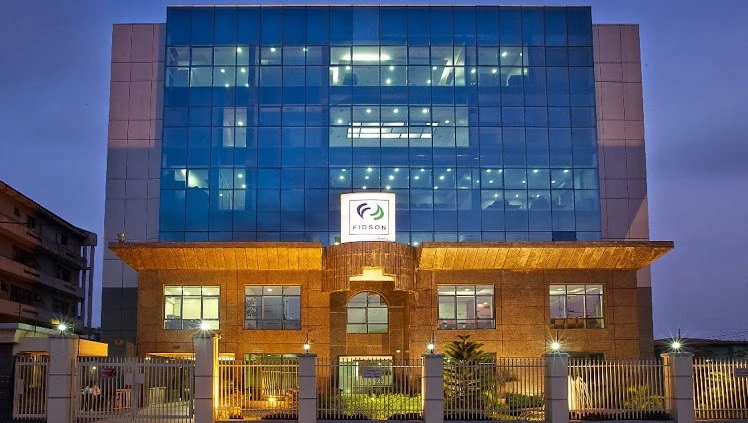By Keem Abdul
As President Bola Ahmed Tinubu pauses in his daily exertions to celebrate and ponder his 73 years here on earth, relevant stakeholders, observers and myself inclusive – even as we wish the President a pleasant birthday celebration – are mulling over his strides in the past two years as President, and even further back to his tenure as Governor of Lagos State.
This list of achievements is far from exhaustive. Suffice it to say, however, that it is a snapshot of one man’s odyssey along the path that Destiny has chosen for him. With the lifting of the ban on political activity in 1991, Tinubu was elected Senator representing the Lagos West senatorial district under the platform of the Social Democratic Party (SDP) during the truncated Third Republic. In the Senate proper, he was handed the role of Chairman of the Senate Committee on Banking, Finance and Appropriations. That position afforded him the opportunity to play a key role in financial oversight and budgetary processes.
As Governor of Lagos State (from 1999 to 2007) his initiatives, projects and policies helped the state to move up the economic ladder – with the astronomic leap in its internally generated revenue, from ₦600m to ₦8bn, which made Lagos the largest subnational economy in Africa. Tinubu’s establishment of the Lagos State Lotteries Board also helped boost the state revenue profile through regulated gaming.
Cognizant of the fact that government, no matter how well-funded, cannot drive development alone, Tinubu instituted a Public-Private Partnerships (PPP) model that attracted private sector investments – especially in infrastructure. The construction of the Lekki-Epe Expressway, for example, was among the first major PPP road projects in Nigeria.
The Tinubu administration recorded many strides in the area of urban planning and transportation infrastructure. It set up the Lagos Metropolitan Area Transport Authority (LAMATA) and tasked it with a mandate to actualize the goals of the Strategic Transport Master Plan, and to work hand in hand with the Lagos State Traffic Management Authority (LASTMA) in a bid to reduce traffic congestion to its barest minimum.
The development of the Lekki Free Trade Zone by the Tinubu administration has so far attracted billions in foreign investments, and so has the modernization of the Lagos-Badagry Expressway, which has also seen a marked improvement in connectivity to the rest of the West African sub-region.
The Tinubu administration also recorded giant strides in the the area of healthcare. Its work on the New Massey Children’s Hospital, along with the rehabilitation of various health institutions across the state, has gone a long way towards a massive upgrade of healthcare infrastructure and access in the state.
Cognizant of the fact that accumulated filth arising from a combination of poor drainage and poor habits was a public health threat to Lagosians, the Tinubu government set the Lagos State Waste Management Authority (LAWMA) which has improved sanitation tremendously.
In the area of security and the administration of justice, the Tinubu government established the Rapid Response Squad (RRS), which has enhanced security response in the state. In addition, the then-Governor created the Lagos State Security Trust Fund (LSSTF), to fund police and security operations. The Governor also demonstrated his support for judicial reforms, which have strengthened the Lagos State judiciary with better funding and facilities.
In the area of education and human capital development, the Tinubu founded the Lagos State University College of Medicine (LASUCOM) in a bid to expand medical education. The construction of new model schools across the state, and the establishment of the Lagos State Scholarship Board has enhanced education access, and also supported students from vulnerable backgrounds.
Housing and the preservation of the environment were a major plank of the Tinubu government in Lagos. The launch of the Lagos Home Ownership Mortgage Scheme (Lagos HOMS), enabled many families to own homes of their own at an affordable cost.
The government’s ambitious land reclamation project – initally to combat coastal erosion, led to the construction of the Eko Atlantic City. Talk of killing two birds with one stone. Also, the dredging of various waterways across the state has Improved inland water transportation.
A long-standing advocate for true federalism, Gov. Tinubu fought for state autonomy and resource control. This led him into the crosshairs of the federal government under President Obasanjo, against whom Lagos State went to court to demand the release of withheld local government funds. Lagos State. Supreme Court ruled in Lagos’ favour. In the period between the withholding of federal funds and the court’s verdict, Lagos showed its resilience, and proved that it could survive and thrive, allocation or no allocation.
Following the expiration of his gubernatorial tenure, Asiwaju Tinubu immersed himself in the task of strengthening the All Progressives Congress, following its formation in 2013 as a counterweight to the then-ruling PDP. He brokered the merger of opposition parties, and subsequently led the coalition that defeated the PDP in 2015.
Following that victory, Tinubu continued to play a kingmaker’s role in President Muhammadu Buhari’s second victory in 2019. Tinubu’s ability to mentor future leaders has produced Governors, ministers, and key politicians.
As President himself, following his victory in the 2023 presidential election, Tinubu signaled a new era of action. On his inaugural day, he pronounced the end of the fuel subsidy regime – in a bid to save trillions of naira for national development. He followed this up with the foreign exchange (FX) market unification policy, which helped streamline multiple exchange rates.The setting up of the Tax Reform Committee is part of the government’s plan to improve revenue collection.
In furtherance of the nation’s bid to pivot away from an oil-based economy, and to minimize the use of fossil fuels, the Tinubu administration came up with the CNG (ie the Compessed Natural Gas) vehicle conversion initiative, which offers a cheaper alternative to petrol.
In his push to end the ravages of terrorist groups and other forms of criminality, the Tinubu government significantly increased the nilitary’s funding, which has enhanced counterterrorism operations. Also, the creation of Forest Guards to tackle banditry and kidnapping is gradually bearing fruit. In his bid to realize his long-standing advocacy for multi-level policing, the President is leading efforts to amend the country’s constitution for that purpose.
There is no gainsaying the fact that massive investment in infrastructure and power generation would result in a quantum leap for Nigeria. In cognisance of this, the Tinubu administration is embarking on a number of infrastructure projects to realize this quantum leap – notably the Lagos-Calabar Coastal Highway Project, a 700km mega-infrastructure. Thanks to the federal government’s power sector reforms, Nigerians are seeing a marked improvement in the number of hours they get electricity daily.
As in Lagos, so also at the federal level. The Tinubu government has demonstrated its intention to build a robust social investment profile. Among the signature projects of this administration is the Renewed Hope Cities & Estates, which entails the construction of mass housing projects nationwide. Following extensive negotiations with the labour unions, the President approved a new minimum wage for public sector workers in response to inflation pressures. The bid for a private-led economy has led the Tinubu government to increase its support for small and medium enterprises (SMEs), notably by enabling their access to single-digit loans. Speaking of loans, the government’s Consumer Credit Scheme (whose objective is to enhance the purchasing power of average Nigerians) and the Student Loan Scheme, which has enabled access to interest-free loans for students in Nigerian universities, are a signal that the mantra, ‘Renewed Hope’ is more than just a mantra.
In a world where entities – whether corporate, governmental, intergovernmental or non-governmental – have become more and more interdependent, Nigeria – under President Tinubu – aims to push its interests to the forefront of global discourse. In the course of seeking cross-border partnerships and investments in the Nigerian economy, the President has undertaken tours abroad, in the course of which he has secured investment (or strong pledges thereof) from governments and corporate organisations in India, the United Arab Emirates, Germany, etc. Nigeria’s push for full membership of the Group of 20 (G20) is also ongoing. In the government’s recogntion that the Nigerian diaspora is one of the largest in the world – with the wherewithal to make a positive difference in the country’s economic fortunes and global profile, the government set up the Diaspora Bond Revival, which is engaging Nigerians abroad for development.
Thanks to his strides, both as Lagos State Governor, and as President of Nigeria, Tinubu is the proud recipient of numerous awards and other recognitions – among them the THISDAY Award for the Best Governor in Nigeria in 2006; the Champion of Democracy Award (by the National Democratic Institute); and Forbes magazine’s Top 100 Most Influential Africans (in 2013, and again in 2019 and 2023).
All these achievements in one lifetime are a sure proof of a life of purpose, determination and hardwork. As he celebrates his 73rd birthday, let us rise up and salute the Father of Modern Lagos, who, as previously mentioned, transformed Lagos into Africa’s 5th largest economy.. Let us salute an economic strategist whose policies shaped Lagos and are shaping Nigeria’s economy. Let us salute a political bridge-builder – who united the opposition to defeat the PDP in 2015. Let us salute a youth empowerment advocate, who has always supported young leaders in governance. Let us salute the taxation pioneer, whose creation, the Lagos State Internal Revenue Service (LIRS) has become a model for other states. Let us salute the women inclusion champion, who appointed female commissioners and advisers. Let us salute a sports development supporter, who backed Lagos sports initiatives. Let us salute the arts and culture promoter, who revived the Lagos carnival, and also supported Nollywood (the Nigerian film industry). Let us salute a disability rights advocate, who created policies for inclusive governance.
Happy birthday, Mr. President. As you mark this milestone, we pray that God grants you mercy, grace and divine enablement as you continue to work for the Nigerian people.
- Keem Abdul, publisher and writer, hails from Lagos. He can be reached via +2348038795377 or Akeemabdul2023@gmail.com





